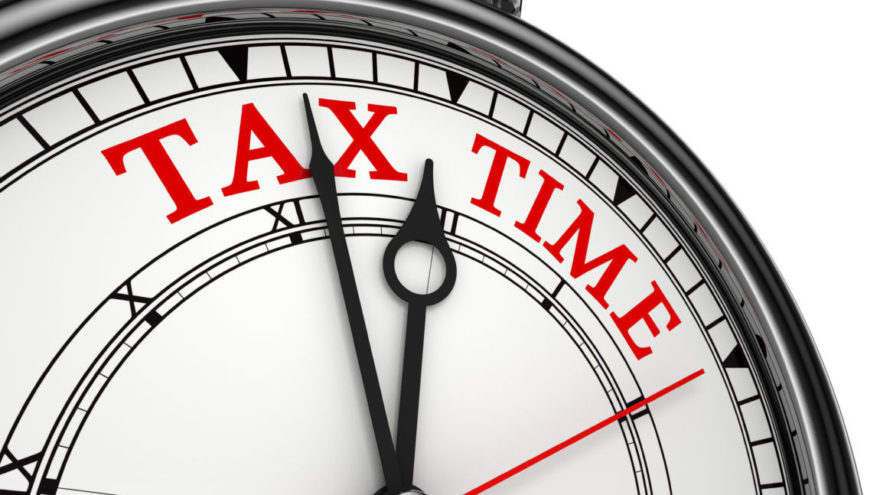If you’re expecting a large tax refund this year, it’s easy to get excited and start making plans for that money. While a tax refund is yours to do whatever you want with, it’s also important to remember that a tax refund is not a free gift from the government. Just the opposite, in fact: it’s a loan that you gave the government by overpaying your taxes during the year and are now getting back, interest-free. It’s always great to get a check in the mail and a relief not to owe on your taxes for the year, but it’s not cause to go out on a spending spree, either. Here are some ideas for what to do with this extra cash and a few things to reconsider.
When Will I Get My Tax Refund?
Taxpayers usually receive their refunds within a few weeks of filing their tax returns, which are due by April 15th in the United States. The exact timing depends on factors such as the chosen refund method (direct deposit or paper check) and the complexity of the tax return. Direct deposit typically results in faster refunds. Retirees can track the status of their refund using the IRS “Where’s My Refund?” tool to get an estimate of when they can expect to receive it. Overall, while most retirees can anticipate their refunds within a few weeks of filing, individual circumstances may lead to variations in processing times.
How Should I Spend My Tax Refund?
Deciding how to spend your tax refund depends on your individual financial situation, goals, and priorities. Here are some suggestions to consider:
- Pay Off Debt: If you have any high-interest debt, such as credit card balances or personal loans, paying it down is the smartest use of your tax refund. The average credit card interest rate is 24%, so it makes sense to tackle that before considering other purchases or investments.
- Invest in Retirement: Consider contributing to your retirement accounts, such as an IRA or 401(k). Investing your refund for the long term can help secure your financial future and take advantage of compounding returns.
- Emergency Fund: If you don’t have one already, consider using a portion of your refund to start or boost an emergency fund. Aim to save six to twelve months’ worth of living expenses to cover unexpected costs like medical emergencies or job loss.
- Home Improvements: Investing in home upgrades or repairs can increase the value of your property and improve your quality of life. Consider projects that offer a good return on investment, such as energy-efficient upgrades or renovations that enhance curb appeal.
- Education and Skill Development: Invest in yourself by using your refund to further your education or develop new skills. This could include taking courses, attending workshops, or purchasing educational materials relevant to your career, hobbies, or personal interests.
- Charitable Giving: If you’re financially secure and want to make a positive impact, consider donating a portion of your refund to charitable organizations or causes you care about. Research and choose reputable organizations that align with your values.
- Treat Yourself (in Moderation): It’s okay to use a small portion of your refund to treat yourself or your loved ones, whether it’s a nice dinner out, a weekend getaway, or a special purchase. Just be mindful not to overspend and prioritize your long-term financial goals.
What Not To Do With Your Tax Refund
While it’s important to consider responsible ways to use your tax refund, it’s equally crucial to avoid certain pitfalls that could undermine your financial well-being. Here are some things you shouldn’t do with your tax refund:
- Splurging: Avoid spending your whole refund on unnecessary or extravagant purchases that provide little long-term value. While it’s okay to treat yourself occasionally, using your entire refund on luxury items or non-essential expenses can leave you with little to show for it in the future.
- Spending it in Advance: It’s always a good rule of thumb to avoid spending money you don’t have, and that goes for tax refunds as well. Resist the urge to spend your tax refund before it lands in your bank account, or you could wind up paying more in interest and fees.
- Ignoring Debt: As noted above, don’t ignore high-interest debt or use your refund to make only minimum payments. It doesn’t make sense to treat yourself to a $500 purchase if you are paying $800 in credit card interest every month. Prioritize paying off outstanding debts, especially those with high-interest rates, to avoid accruing more interest and to improve your overall financial health.
- Using it as a Windfall: Avoid treating your tax refund as a windfall to be spent impulsively without considering its long-term implications. Instead, view it as an opportunity to make strategic financial decisions that align with your priorities and contribute to your overall financial security.
- Making Impulsive Investments: Refrain from making impulsive or speculative investments with your refund without conducting thorough research or seeking professional advice. While investing can be a valuable way to grow your wealth, it’s essential to approach it with caution and prudence to minimize the risk of financial loss.
By avoiding these common pitfalls and adopting a thoughtful and strategic approach to managing your tax refund, you can make the most of your tax refund and set yourself up for long-term financial success.
Have any questions about what to do with your tax refund? Contact Zynergy Retirement Planning today.

